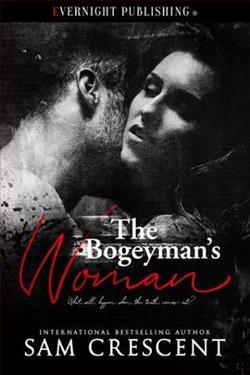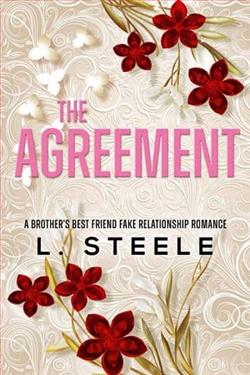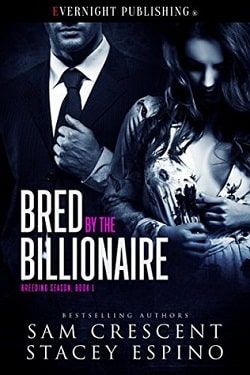Page 12 of Going Home in the Dark
“Funny,” said Ernie, although he was not in the least amused. He was instead using the word as a synonym for “curious,” for “weird,” for “what the hell,” for “uh-oh.”
6Just a Little Bit More You Need to Know about Spencer Truedove
Because this account of the travails of the amigos is based on a true story and isn’t a work of fiction (or is not strictly such a thing), the cast can’t be reduced to one or two protagonists. The structure of the book must not be left to the whims of the author. Back in the day, four social misfits endured the horrors of Maple Grove. If three or two or even just one of that unfortunate group were to be edited out of this telling of their ordeal, what sense would it make? No sense.
However, the author and his editor and his publisher and the perpetually nervous folks in the marketing department are well aware that studies conducted by major universities (them again) indicate that between 39 and 57 percent of modern readers, who lead busy lives even if to no sensible point, have markedly less patience for character details than did readers in the time of Charles Dickens or, for that matter, in the time of Herman Wouk. Consequently, strategies have been developed to keepallreaders, the patient and the impatient, engaged. One strategy is to divide long chapters into two shorter ones, wherever possible, to distract the reader from the amount of character detail and to contribute to the illusion of headlong suspense. That is why the material inthis chapter was moved from Chapter Three, where it appeared in the first draft.
Readers can be confident that Rebecca, Bobby, and Spencer will arrive in Maple Grove soon and that, after they have gathered at Ernie’s bedside, this narrative will accelerate through a rollicking series of exciting and terrifying events that might leave you winded if you haven’t been eating the right foods and exercising according to the advice of the fanatics at the National Institutes of Health.
So there was Spencer Truedove in his black outfit with a snap-brim porkpie hat and mother-of-pearl buttons on his shirt, piloting his SUV through the vast tedium of the heartland. Earlier, he had told Bobby that he felt as if he were riding a unicycle on a high wire over an abyss. That was indeed how he felt, partly because he feared for the life of his friend Ernie and because that’s how he always felt during and immediately after a conversation with Britta.
What most unsettled him about the woman was her certainty that her every opinion was the spot-on truth and that every action she took was the only action any honest, right-thinking person could possibly have taken. Spencer, on the other hand, never felt confident as to his thoughts about any subject, and when he had taken action, he suspected there were a dozen things he could have done that would have been more appropriate and humane.
He didn’t even know why he had become an artist. As a six-year-old, when the world had seemed immense, Spencer had expected to be an explorer who would discover a huge new continent and name all the states and towns on it—Poopville in the state of North Poop, Poop Beach in Poopafornia, and so forth. It would be a great place to live because the residents would alwaysbe laughing their asses off at all the poop jokes. In his early teens, when poop wasn’t the peak of humor that it was for six-year-olds, he adjusted his expectations to the reality that Earth had fully divulged itself to explorers who came before him; the early-Victorian world of mysterious lands and uncharted waters was gone. During Spencer’s school years, anxious to escape the cool kids being shaped into a new generation of corrupt public servants and fanatical cultists of one kind or another, he had taken refuge among the amigos, none of whom gave the slightest thought to their future as adults because they didn’t expect to have one.
That Spencer would become a successful artist was as unlikely as that he would become a circus clown. Here’s how it happened.
Because he’d been held back one year in elementary school, he turned eighteen while still a senior, at which time he received an unexpected inheritance of sixty-seven thousand dollars from his maternal grandmother, who died years earlier but had been secretive about the terms of her will. This is one of those twists of fate we find delightful even when it happens to someone else, although we must keep in mind that it required a premature death; we should take a moment to mourn the deceased.
Spencer might have remained in Maple Grove with his amigos for another few months if Grandma’s bequest hadn’t triggered nightmares so terrifying that he woke screaming. Years earlier, when he was fourteen, his mother had announced that Maple Grove was too bland, stifling, too “managed,” whatever that might mean. She had lost herself, the free spirit she’d once been. She needed to find herself, the vibrant woman she had been or could be—and she left the same day. Spencer’s father then left his wife (and the son who reminded him of her) for a woman who didn’t need to find herself. This is a twist of fate that pleases someof those involved but not all, and we should take a moment to wonder what fate is up to in the long run. Anyway, after having lived alone for years in his dad’s house, he began to suffer horrific dreams in which his parents came back, remarried, and turned their attention to him. He fled.
For four years, the amigos had been supportive of Spencer as his family deserted him. But the other kids in Maple Grove proved to be sharp-tongued predators who recognized that Spencer was a wounded animal; they pursued him with the clever, flaying wit for which teenagers are renowned. With the blessing of his amigos, who would have liked to flee town with him if they had each inherited sixty-seven thousand, Spencer dropped out of school and went to Chicago.
In the Windy City, he rented an apartment and fell into a fugue state, though the second action wasn’t intentional. He woke six weeks later to discover five enormous canvases aswirl with eerie, colorful images that made him question his sanity. By this time, he had forgotten the terrors that he and his amigos had experienced, just as they would forget them as well a few weeks later.
In what might have been yet another twist of fate or perhaps only a coincidence, a young woman who occupied another apartment on the same floor as Spencer’s, Portia Clavus, happened by his unit while the door was open and glimpsed one of his paintings. Portia possessed two degrees from Harvard and knew such inside-art stuff as that Leonardo da Vinci invented the submarine sandwich and that Van Gogh cut off his ear not after an argument with Gauguin but because he had another one that felt redundant. Portia worked in Chicago’s premier gallery and was intenton becoming a big player in the art world regardless of whom she had to destroy in her climb to the top.
Shrieking in ecstasy, she burst into Spencer’s apartment with such enthusiasm that for a moment he thought she had come to kill him. Even when he ceased to fear for his life, he was unsettled by her excitement. Being very young and inexperienced, being modest by nature, and having no idea how or why he had created the paintings in an amnestic state, he couldn’t take Portia’s extreme praise seriously. The more she gushed, the more convinced Spencer became that she was either deranged or a scam artist.
Portia was not deterred by his reticence. She wouldn’t have been deterred if he had threatened her with a meat cleaver. Art was the only thing that mattered to her, art and the fortunes that could be made from it. She pursued Spencer from room to room, haranguing her quarry until she had given him a headache like a sharp object driven into his skull. To be rid of her, he agreed to receive her and her employer at four o’clock that afternoon.
He intended to be gone when the woman returned with Erhardt Dusterheit, who was the owner of galleries in Chicago, Boston, New York, London, and Paris. However, the fierce headache did not relent until 3:50. Spencer had only enough time to wash his sweaty face and rinse the bitter taste of chewed aspirins out of his mouth before the doorbell rang.
Dusterheit was a tall man with a long face. A wide mouth and thin lips shaped a smile as sharp and humorless as the blade of a mezzaluna. Long, narrow nose like the proud bow of a warship cleaving the sea. Pale-gray eyes. Titanium-silver hair. His long ears were almost flat against his head, and a teardrop diamond worthas much as a Rolls-Royce depended from the right lobe. You get the picture.
Whereas Portia had been exuberant at her first sight of the paintings, Dusterheit was silent, like a hawk coasting on thermals, as he moved from one huge canvas to another, spending no more than two minutes with each. His face remained as expressionless as his exquisitely tailored charcoal-gray suit.
Spencer had arrived at the conclusion that Dusterheit would say, “Have a nice day,” pivot on one heel, and leave without any comment about the paintings.
Instead, the gallery owner asked, “What is it you mean to say with these compositions?”
Because he had no idea what he had meant to say, if he had meant to say anything at all, Spencer said, “If there were words to express my intentions, I wouldn’t have expressed them in images.”
Dusterheit regarded him in meaningful silence for half a minute before saying, “The objects portrayed here look like nothing I have seen before, yet they are so dimensional that one senses each of them has a function. How would you describe their function, their purpose?”
Because Spencer didn’t know what the hell they were, he said, “Everyone who views them must follow a unique path to their meaning. Imagine function first. Then you’ll know their purpose. They’re revealed to me, but they don’t come with an explanatory pamphlet.”
“And if they did? Come with an explanatory pamphlet?”
Spencer felt drained. He needed help. He tried to imagine what Bobby the Sham might say. Bobby was a writer. He could bullshit his way out of any jam. “I wouldn’t read such a pamphlet. These objects are mystical in nature. The meaning that anyoneelse imposed on them would be limited by his power of interpretation. If I listened to him, I’d be robbed of the opportunity to explore them myself and perhaps find the fuller truth of them.”
Following another and more intense silence, Dusterheit said, “Some of these objects actually seem to be entities, organisms.”
“Don’t they?” said Spencer.
“Some might say they find them frightening or even disgusting. What would your response be to that?”
Channeling Bobby the Sham, Spencer said, “That is a danger one faces when interpreting art. One can inadvertently reveal more about oneself than about the work under discussion.”















